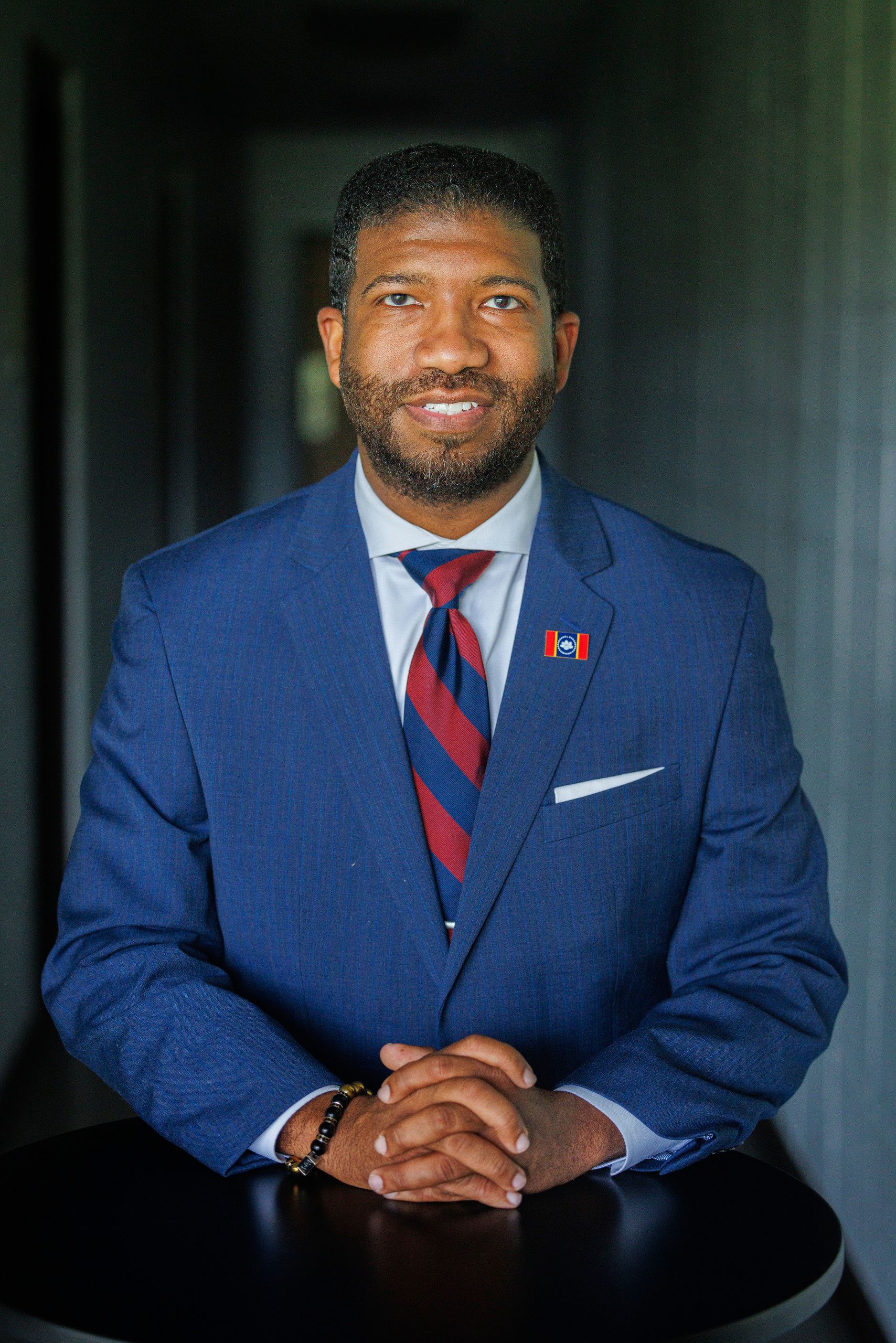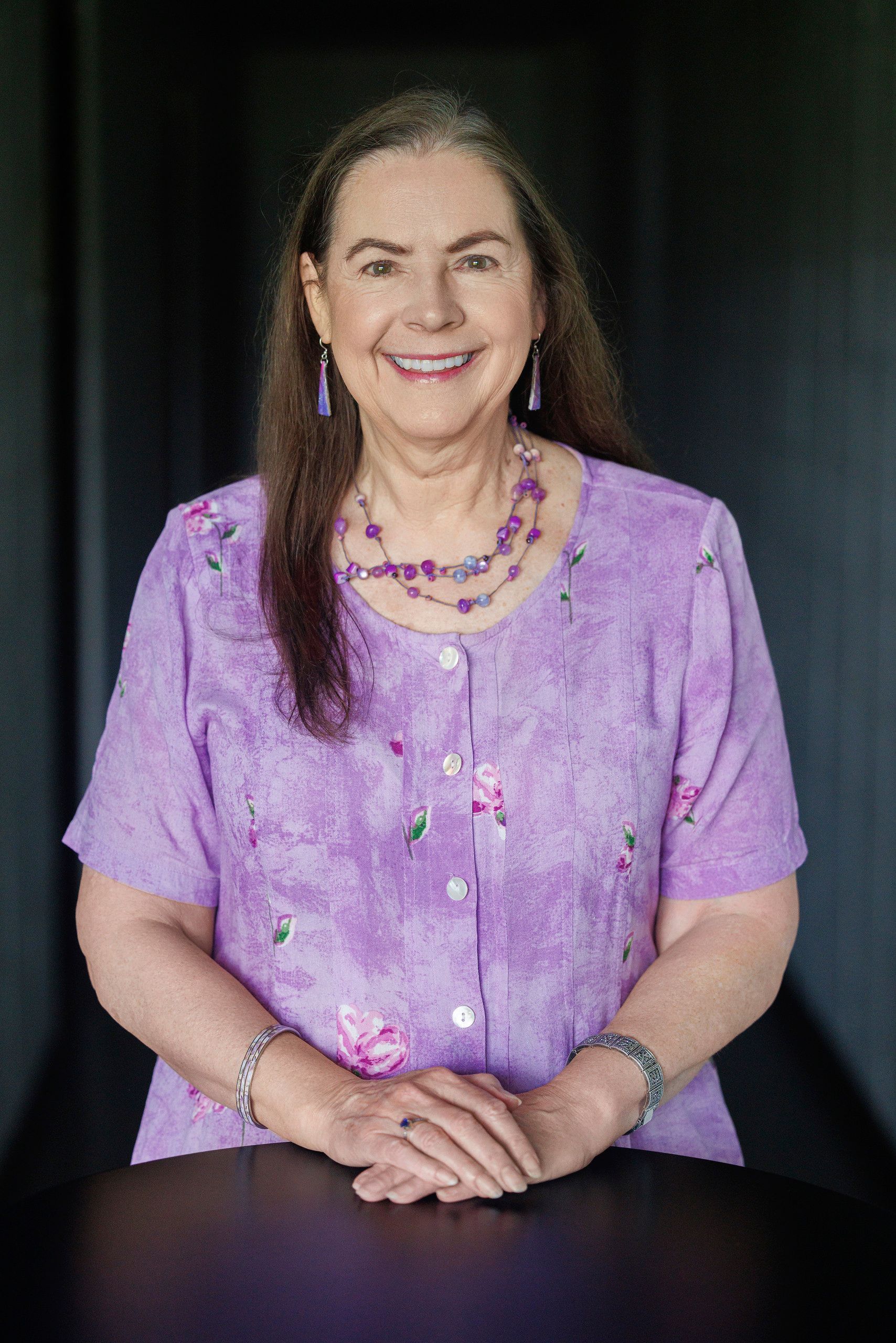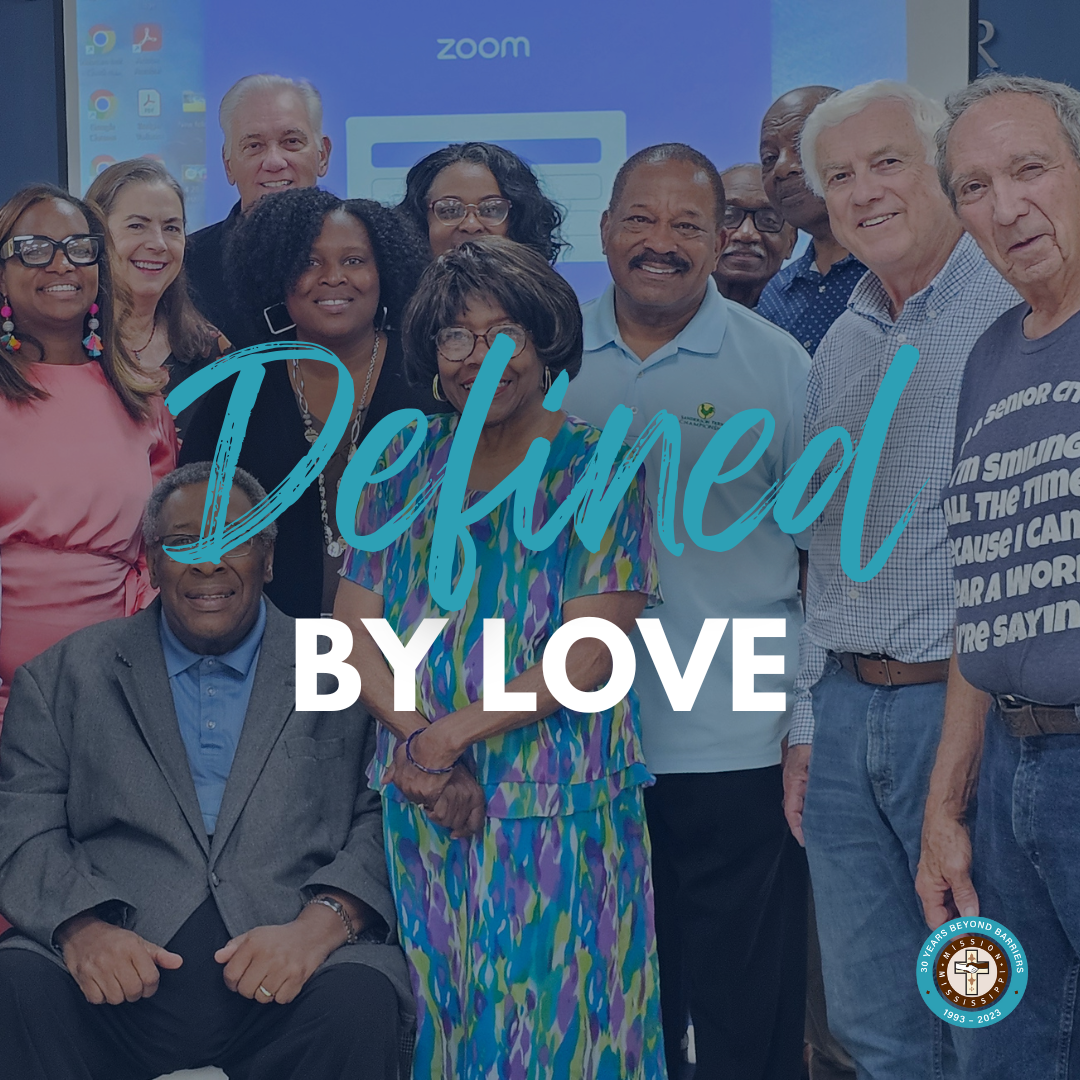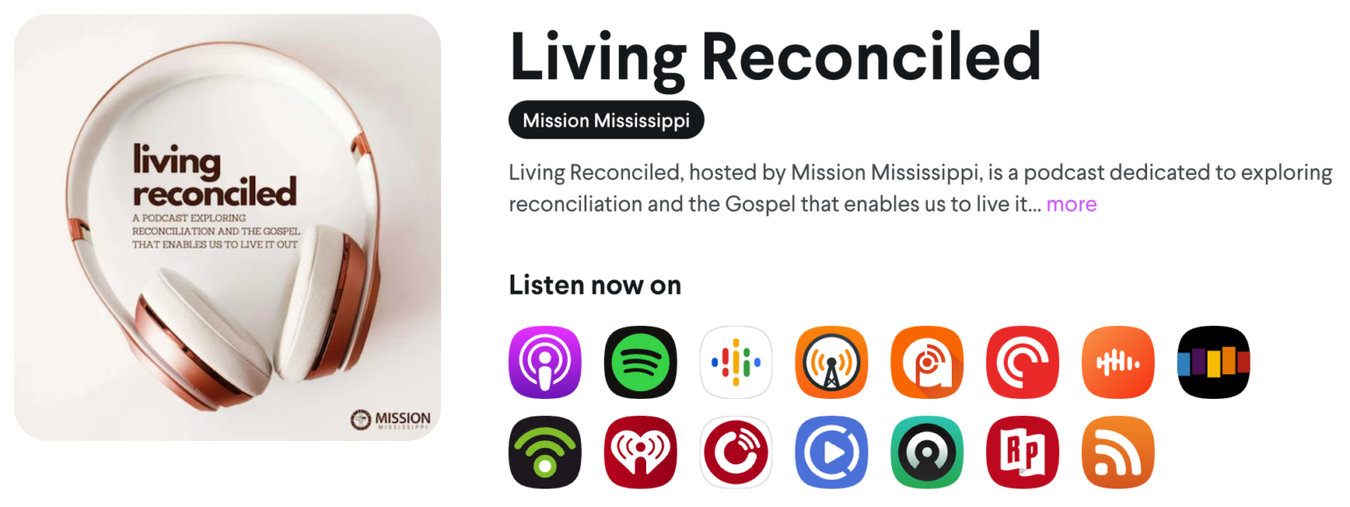Reconciliation Through Relationships
Our model is to bring people together to build relationships across racial lines so they can work together to better their communities.
Join Our Podcast Channel
You can find our podcast, "Living Reconciled" on all major podcast outlets.
Our Blog

By CJ Rhodes
•
February 13, 2025
My first job after graduating from divinity school was with Mission Mississippi. I came to the ministry in 2009, which was a season of transition in this country and for the organization. Frankly, what was happening in national politics pulled back the veneer of racial tensions that still permeated the state then. People who worshipped, worked, and even played together were balkanized in ways that disclosed how much more work needed to be done to reconcile people who claimed to be reconciled to God. Fourteen years later, I serve as the chair of the board of directors. I can say that as much as things have changed for the better since 2009, there are ways in which racial tensions in this state are actually worse now in metropolitan Jackson and in enclaves throughout Mississippi. Thirty years ago, this ministry began to meet a need: racism and de facto racial segregation were and still are impediments to evangelism. How can a divided church witness to Christ’s love for lost people if the found folks cannot get along? That was the question then, and it remains a relevant one in 2023. Thirty years later, Mission Mississippi continues to see the need for this reconciling work because increasing numbers of people doubt that the gospel has any power to change lives and the enduring issues that plague our communities. I like to say that Mission Mississippi must serve as an embassy of the kingdom of God. “We are therefore Christ’s ambassadors, as though God were making his appeal through us. We implore you on Christ’s behalf: Be reconciled to God.” (2 Corinthians 5:20 NIV) We must see our ministry much like a diplomatic mission. We must commend the gospel in hostile territory where the conflict is hot. Younger generations are crying out for this. Millennials (like me) and Gen Zers believe that the gospel speaks holistically to the human condition; it is good news in the midst of bad news and even falsehoods. But our divisions blur this reality for many Mississippians who know how complicit the church has been in what ails us. Diplomats help conflicting parties see better. A few years ago, I decided it was time to get glasses. I’m nearsighted, which means objects further away are blurry to me. With my glasses, though, I can see clearer and make out important details on the horizon. At its best, Mission Mississippi is like a pair of corrective lenses. The gospel’s themes of love, mercy, justice, and salvation are blurry objects in the distance for people closer to hate, malice, injustice, and hopelessness. Our ministry can help them see clearer and further, so that “fixing our eyes on Jesus, the author and perfecter of faith,” we can have a better vision of Mississippi where Christians live out the grace of the gospel unhindered by racism, racial strife, racial prejudice, racial hatred, and racial division throughout Mississippi and the world. Dr. CJ Rhodes, serves as the chairman of the Mission Mississippi Board of Directors, is pastor of Mt. Helm Baptist Church in Jackson, MS, and director of the Hiram Rhodes Revels Institute for Ethical Leadership at Alcorn State University.

By Sherri Tynes
•
February 13, 2025
There are SO many reasons to love Jesus. One that always brings a smile is how He enjoyed parties. We know from Scripture that the first recorded miracle took place at a wedding reception. He was there as a guest, but as an obedient son, the Son handled a rather unusual request from his mother. And because of that, the celebration continued without any interruptions. In October of 1993, I began my journey with Mission Mississippi (MM). This year we celebrate our 30th year of ministry. My first introduction was at a 3-day rally held at Memorial Stadium in Jackson. I watched in awe as over 100 preachers and priests carried a cross over 100 yards down the field. The voices of an interdenominational, multi-ethnic choir were heard throughout the stadium. Then, I listened as Pat Morley and Tom Skinner spoke of their friendship and deep love for one another – all because Christ had led them to cross barriers of color and recognize the Holy Spirit living within each of them. Would anything result from this rally – which asked us to look within and consider how we, too, might begin to cross some of our very own barriers – of denominational and racial differences? My next chapter began in April of 1997. A staff member from my home church asked my Sunday School class to choose a Thursday to attend a Prayer Breakfast which was to be hosted by a local church, but led by the MM ministry. Three of us from the class attended a breakfast at Briarwood Presbyterian Church. The night before, a dear friend’s son had committed suicide and I was going to see her later that morning. I SO felt the need for prayer. When we broke into small groups to pray, a Black brother prayed the most comforting and encouraging prayer for me. Two months later, I attended a MM Prayer Breakfast my church hosted. And, after that, I was “all in.” So, what difference have these 26+ years made in my life? Well, there was Willie Bell, whom I met at Christ the King Catholic Church, while we were attending a Prayer Breakfast there. When I first heard her pray, I was moved by her words and how well she and God seemed to know one another. Early on, MM organized events called “Two and Two Together.” Area restaurants gave a 22% discount for all patrons who visited with someone different from themselves. Since Willie Bell and I were “different colors,” we decided we would participate together. We shared meals and prayers for many years after that. We became friends. Later, larger groups shared meals together. We participated in ministry projects, like wrapping presents at Christmastime at the mall. Just like Jesus, we enjoyed our times of fellowship. They were sweet. When you have prayed together, that lays a wonderful foundation for growing a beautiful friendship. There have been numerous friends I’ve made throughout this journey. There was Joel, who often began his prayers by saying, “Thank you, God, for waking me up this morning and touching me with your fingers of love.” I learned valuable lessons from Joel’s sweet and humble spirit, his dependability, his love for all things “MM.” He kept “at it,” until he was 91 and moved to Heaven! Some people I would see yearly when their church hosted a breakfast. Mary, from St. Richard’s Catholic Church, wasn’t used to praying aloud with others, but the second time we visited her church, she decided to “give it a try.” From then on, she was eager to pray with those in her small group during our prayer time. Had there not been a MM organization, I would never have met Willie Bell, Joel and Mary. Oh, I will see them again in Heaven (because these three have already “relocated” there), but I would have missed the pleasure of knowing them on “this side.” I was privileged to know the three previous directors/presidents of MM – first, Jarvis Ward, then Dr. Dolphus Weary and most recently Bro. Neddie Winters. I celebrate these three leaders and thank the Father for each of them. Now, we celebrate our newest leader, President Brian Crawford, who officially joined us in April. What has all this meant to me? It has helped me recognize how big my God is and how all-encompassing His love is for everyone. I’ve realized the importance of living reconciled NOW, not just waiting for Heaven where everything is perfect and all problems have been resolved. No, God had it in mind for us to work on relationships on “this side.” I still have miles to go, but my life has been so much richer and so very blessed by journeying with all these precious brothers and sisters in Christ whom I wouldn’t have met otherwise. MM made this all possible. This was not man’s idea, this was God’s idea. I am beyond grateful that it was HIS idea for me to participate. To “live reconciled,” we must first be reconciled to God through Jesus Christ, then we can work on our relationships with one another. And, it’s not a cake walk. It takes intentionality and commitment. It takes the Holy Spirit working in us to help us see people the way God sees people. My journey with MM has enlarged my understanding of God in ways I would have never imagined. And my life has been blessed in ways I would have never dreamed. I am so thankful to HIM and to MM. What now? Come and join us on this journey. Come celebrate with us! “Living Reconciled” truly is the ONLY way to really live!

By Stephanie Cunningham Warren
•
February 13, 2025
This past Thursday, I had the pleasure of riding down to Jackson with local friends to attend the 30th anniversary of Mission Mississippi. The organization which started in Jackson all those years ago, aims to bring white people and black people together to discuss racism in a Christlike way. The goal is to gain understanding and empathy toward one another through reconciliation. The leaders of the group realize that all of us people are never going to absolutely agree. We all come from different backgrounds, cultures and situations; however, we can gain understanding of one another. We can empathize with one another. But, in order to do so we need to get to know each other first. While in Jackson I sat down to chat with a young lady who works with the organization. She told me she was born and raised in Jackson. In fact, she said it was the only place she’s ever lived. She’s a single mother of one child. She’s also Black. She very honestly told me prior to her work with Mission Mississippi, she actively avoided spending any time around or near White people. “It’s just how I was raised. I was never around White people growing up. I didn’t have a need to talk to White people so I avoided them whenever possible,” she said. Her honestly was shocking to me. It was shocking because its something we don’t normally address in “polite” conversation. It was also shocking because I had never considered Black people would be intimidated by me, a White woman with green eyes, blond hair, stands 5’3” and weighs about 120 pounds. Not exactly an intimidating person. Yet, here she was telling me that she never would have spoken to me before she was involved with the program because she would fear me based on the color of my skin. Now here’s where the organization gets it right. They put fear aside and ask Jesus to help reconcile their hearts through prayer. The goal is to have these open conversations and to develop relationships with each other. Because once a strong foundation is formed, a sense of trust is formed. Now, the young lady in Jackson told me those confessions because she realized I was approaching her out of love. Sure. We’d only just met, but she knew I was there to talk to her. To hear “her side of the story”. We both understood we weren’t there to be harsh to one another. We were there to learn, and have compassion with each other as brothers and sisters in Christ. We will never defeat racism by being harsh with one another. It has to be approached with love. I thanked her for sharing her story and why she believed so strongly in Mission Mississippi. Can you just imagine the change we’d see in the world if we all slowed down and approached each other like this everyday? The world would be a more compassionate and understanding place with less hatred and fear all based on the pigmentation of one’s skin. It would also be more Christlike, and what a joyful place that would be.

By Brian Crawford
•
February 13, 2025
Moving Different When I was a teenager, I thought I was the definition of cool. At 16, I got my first car—a Nissan Sentra—and the first thing I did was lean the driver’s seat all the way back. Because, of course, cool people don’t sit upright in their cars, right? For two years, I drove like that, convinced I was too cool for school. But then, my aunt asked me to help move some furniture. I bent down to lift a piece, heard a pop in my back, and, well, life was never the same. From that moment, my back gave me trouble, and I had to change the way I did things—starting with how I drove. My “cool guy” lean was wrecking my posture, so I had to adjust and start sitting upright. It wasn’t comfortable, it wasn’t cool, but it was necessary. That change was healthier, even if it wasn’t cooler or what I wanted at the time. Isn’t that how life is? Sometimes, we hold onto what we think is “cool” or comfortable, even when God is calling us to something better—something new. That’s exactly what’s happening in Luke 5:33-39. Let’s take a closer look. Joy in the Bridegroom’s Arrival In this passage, Jesus is hanging out with tax collectors and sinners—people who weren’t exactly popular in ancient Israel. Tax collectors were considered traitors and cheats, and sinners, well, they weren’t the type you’d invite to a religious gathering. But Levi, one of newly called Jesus’ disciples and a tax collector himself, throws a big party to celebrate how Jesus changed his life. He invites all his friends, and Jesus shows up. The religious elite—the Pharisees and scribes—are not happy. First, they don’t like the company Jesus is keeping. Then, they criticize Him for even being at the party. They say, “The disciples of John fast often and offer prayers, and so do the disciples of the Pharisees, but yours eat and drink” (Luke 5:33). In other words: “Why are you doing things so differently?” Jesus answers with this: “Can you make wedding guests fast while the bridegroom is with them?” (Luke 5:34). Weddings in ancient times were a big deal. There was the engagement, the ceremony, and the feast, the highlight of the wedding! The feast was a celebration filled with food, dancing, and joy that could last a week! Jesus is saying, “I’m the bridegroom. I’ve arrived. This is a time for celebration!” That’s the first lesson here: Jesus’ presence brings joy. Yes, there’s a time for fasting, but this wasn’t it. And the joy He brings isn’t fleeting—it’s lasting and transforming. It’s a joy that should shape how we live every day. So, let me ask: Does your life reflect that kind of joy? Are you walking in the joy of knowing that Jesus has come, or has that joy been clouded by the “angertainment” of culture, social media, and 24-hour political commentary. Are you letting the frustrations and divisions of the world define you or are you being defined by the reality that a Savior has come? As believers, we’re called to live differently—to be perpetually marked by joy, not misery, love, not hatred. Out with the Old, In with the New But Jesus doesn’t stop there. He goes on to tell a parable about new wine and old wineskins. Back then, wineskins were made from animal hides. When new wine was poured into them, it would ferment, releasing gases, and expand, stretching the skin. Once a wineskin had been stretched, it couldn’t handle more new wine—it would burst. Jesus is saying something powerful here: You can’t pour something new into something old. The Pharisees were trying to fit Jesus into their old traditions and self-righteous ways, but He wasn’t about patching up the old. He was bringing something entirely new. This is where it gets personal. How often do we try to “Jesus-fy” our old habits? We hold onto patterns of sin, division, or bitterness and try to slap a little Jesus on top. We justify patterns of hatred when Jesus tells us to love our enemies. We justify patterns of self-centeredness and selfish living when Jesus calls us to be LIVING SACRIFICES. Following Jesus isn’t about adding Him to the old patterns, adding to him to our lives—it’s about replacing the old with the new. Think about it: Are there areas in your life where you’re trying to hold onto the old while claiming the new? Maybe it’s a grudge you refuse to let go of, a people you refuse to love as yourself, a habit you don’t want to break, or a way of thinking that doesn’t align with His teaching. Jesus isn’t asking for tweaks—He’s calling for transformation. Embracing the New As we enter a new year, I want to encourage you: Don’t settle for patching Jesus onto your old life. Embrace the new. Let His joy define you. Let His grace transform you. No, this isn’t about works or earning your way—it’s about receiving the gift of His newness and the arrival of His life into your life and letting it reshape everything you do. The bridegroom has come. Let’s celebrate, live differently, and embrace the newness of His gospel in every area of our lives. Amen.

By Brian Crawford
•
February 13, 2025
In John 13:34-35, Jesus speaks directly to what should define His followers:
“A new commandment I give to you, that you love one another: just as I have loved you, you also are to love one another. By this all people will know that you are my disciples, if you have love for one another.” Jesus is clear: love is not just an ideal—it’s the defining mark of His disciples. Without it, we lose our authenticity, our relevance, and ultimately, our witness.
Our Vision
Our hope, prayer, and dream is that by 2043, Mississippians would be able to see a tangible, thriving, and thorough “Living Reconciled” movement in every generation, geographic area, & gospel-believing church in our State.
Join our volunteer community
We are always looking for volunteers to help at events, at the office, and more. Consider getting involved on our volunteer team today.
To encourage and demonstrate grace in the Body of Christ across racial lines, so that communities throughout Mississippi can see practical evidence of the Gospel message.
Our Mission




